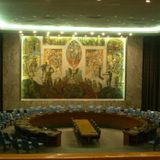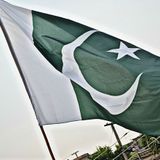RECENT ARTICLES

What Does India’s Election as a Non-Permanent Member of the UNSC Mean For Pakistan?
On Wednesday, India became a non-permanent member of the . Last year, India’s candidature received undisputed support from all countries in the 55 member for its bid to secure the seat for a two-year term in 2021-22.The development is particularly significant for Pakistan, as the country faces diplomatic challenges from India at the United Nations.For decades, India has sought the at the UNSC. To reach this goal, India has to prepare a bid for the permanent candidacy. In the past, India has held the same position seven times. For years, New Delhi has worked closely with the so-called G-4...…On Wednesday, India became a non-permanent member of the . Last year, India’s candidature received undisputed support from all countries in the 55 member for its bid to secure the seat for a two-year term in 2021-22.The development is particularly significant for Pakistan, as the country faces diplomatic challenges from India at the United Nations.For decades, India has sought the at the UNSC. To reach this goal, India has to prepare a bid for the permanent candidacy. In the past, India has held the same position seven times. For years, New Delhi has worked closely with the so-called G-4...WW…

Amid COVID–19, Pakistan Launches an ‘Islam Friendly’ Action Plan to Keep Mosques Open
Last week, Pakistan’s to formulate a plan for congregational prayers during the month of Ramzan (Ramadan). The Pakistani state agreed to a after consultation with religious scholars of all sects.The crux of the plan is that the government in Pakistan has decided to keep all mosques open, a key recommendation made by clerics of all major seminaries. The decision could have disastrous public health implications amid the COVID-19 pandemic as its implementation and agreed guidelines are unlikely to be followed or enforced across the thousands of mosques across the country. What is particularly...…Last week, Pakistan’s to formulate a plan for congregational prayers during the month of Ramzan (Ramadan). The Pakistani state agreed to a after consultation with religious scholars of all sects.The crux of the plan is that the government in Pakistan has decided to keep all mosques open, a key recommendation made by clerics of all major seminaries. The decision could have disastrous public health implications amid the COVID-19 pandemic as its implementation and agreed guidelines are unlikely to be followed or enforced across the thousands of mosques across the country. What is particularly...WW…
- Total 2 items
- 1